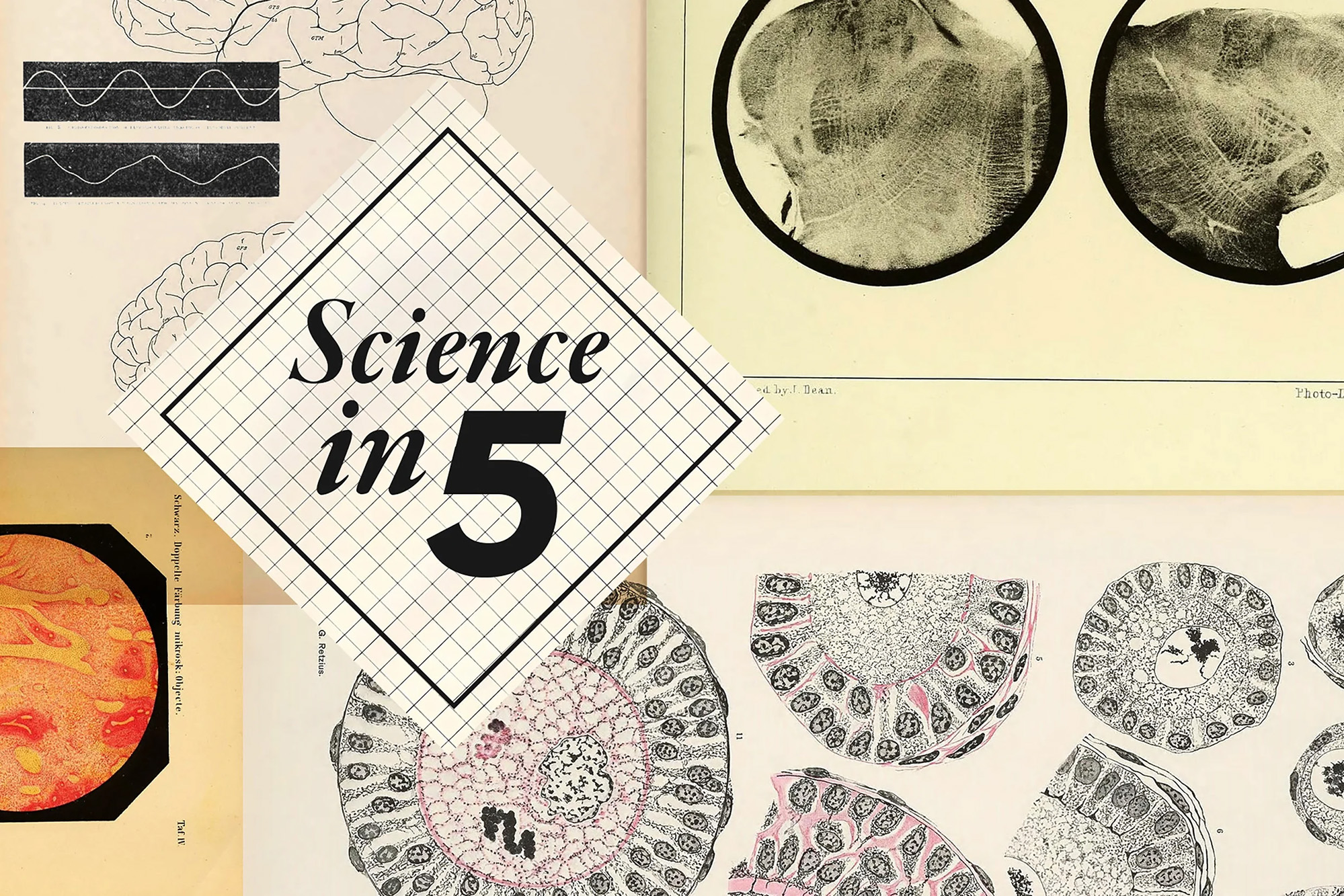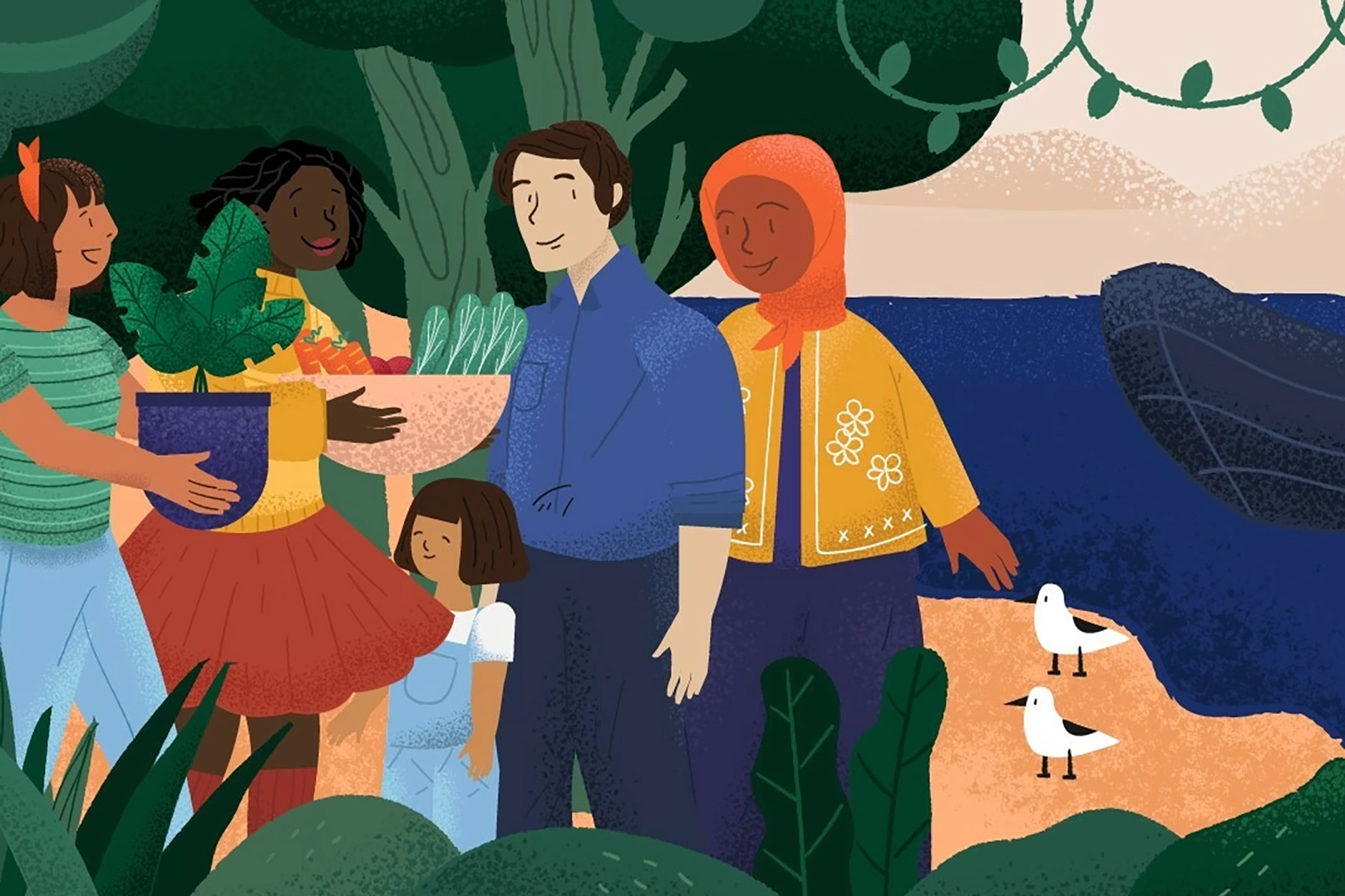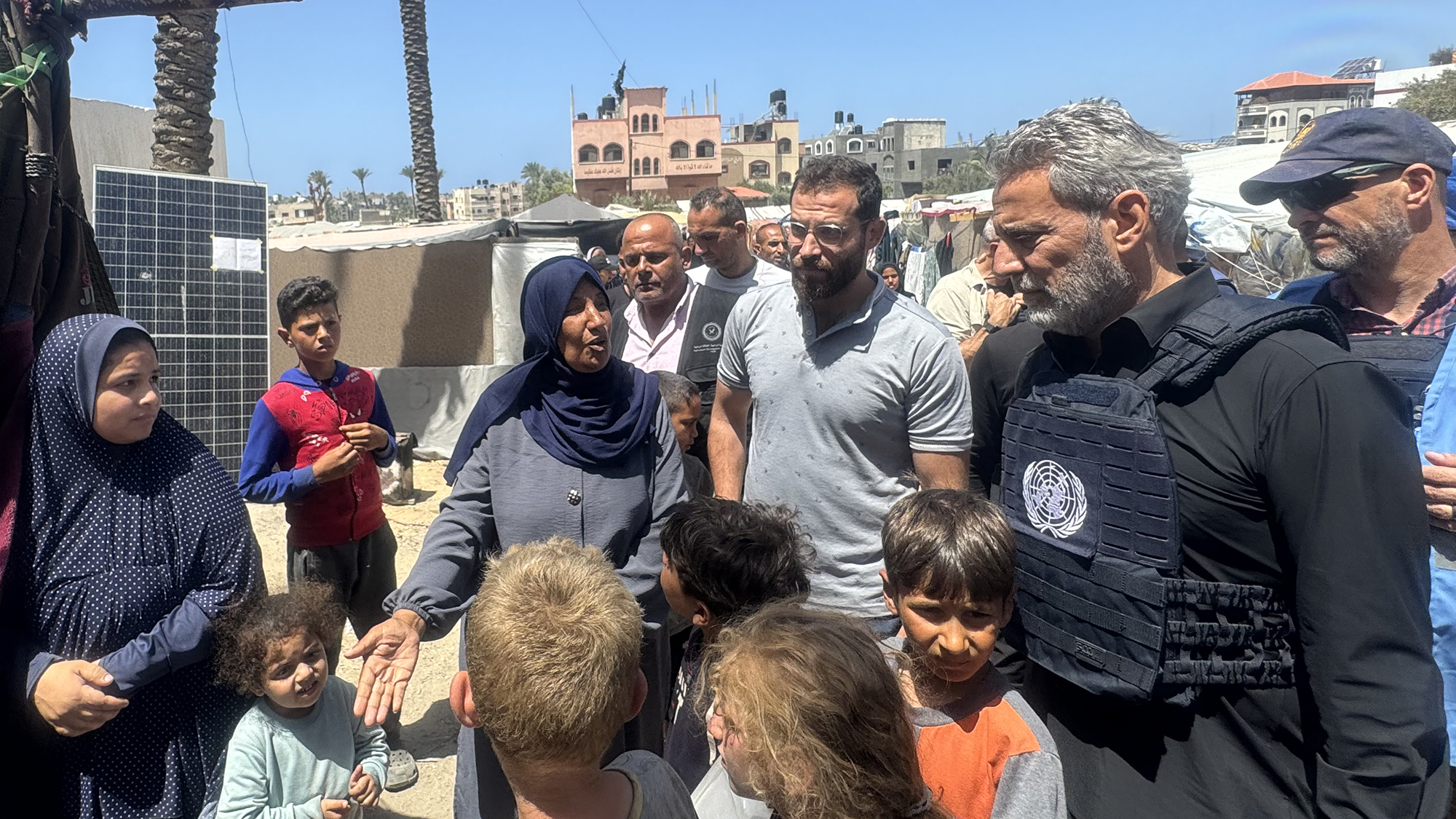If you have children who play sports or if you play sports, you need to know about concussions. What is it? How do you know if you have had a concussion? What can you do to prevent it? Dr Tarun Dua explains the symptoms and prevention of concussion in a new episode of the WHO podcast Science in 5.
“I don't think you can underestimate the capacity of human ingenuity to come up with solutions at a blistering pace.”
Acclaimed actor, filmmaker and three-time Academy Award nominee Edward Norton has long been raising his voice on behalf of the planet and its most vulnerable communities. As a UN Goodwill Ambassador for Biodiversity, he is championing the protection of biodiversity for the well-being of all.
“It’s quite heartbreaking. I started diving, when I was 14, in the Caribbean. The change to the reef environments in the Caribbean in my adult lifetime is staggering and really upsetting [...] It looks like a burnt forest or something. It’s just not, it’s not as alive.”
Working closely with communities in East Africa and around the world, Edward is pushing for conservation that also tackles poverty by providing sustainable sources of income for local communities. In this special episode, the Hollywood star reflects on his activist upbringing, his hopes for his children, and on balancing a successful acting career with a rich, varied and meaningful life.
Photo: ©UN Photo/S. Cardi
How can social protection help those most vulnerable to the worst impacts of climate change?
In this episode of ILO's The Future of Work podcast, Kumi Naidoo, a longtime human rights and climate justice activist, and Shahra Razavi, Director of the ILO’s Universal Social Protection department, discuss the issue.
October is breast cancer awareness month.
Breast cancer is the most common cancer globally, with around 2.3 million new cases every year.
It represents one in eight cancer cases in both sexes and a quarter of all cancers in women, with 70% mortality occurring in resource constrained settings.
It is the most common type of cancer among women, and most breast cancers are self-detected.
World Health Organization expert Dr Mary Nyangasi explains in this episode of Science in 5.
The risk of the world’s major powers engaging in conflict is at its highest level since the Cold War, and the possibility of nuclear war breaking out is greater today than it has been for several decades. On the final episode of Focus on the Future podcast, Conor Lennon and Ben Malor from UN News concentrate on international peace and security, and how the Pact for the Future could help to reduce tensions. We’ll hear from the UN’s heads of Peacekeeping and Peacebuilding (and explain the difference between the two concepts), and the Director-General of the International Atomic Energy Agency, who warns against “normalizing” the idea of using nuclear weapons.
Did you know that a snakebite kills someone every four minutes? What should you do if you are bitten? Dr David Williams talks about prevention and treatment in a new episode of the World Health Organization's Science in 5 podcast.
Working from home was not an option for most people before March 11, 2020, when work and home life suddenly collided. The pandemic upended many aspects of doing business, but the daily commute is one routine that seems unlikely to return to what it was.
Nicholas Bloom was studying the potential impact of remote work long before the pandemic launched it into the mainstream and now has data to suggest businesses should stick to the hybrid working model. Bloom is the William D. Eberle Professor of Economics at Stanford University.
The world has changed since postwar economic thought placed GDP growth as its guiding principle. 20th-century progress has pushed planetary resources to the limit and brings the sustainability of traditional macroeconomic models into question. In a new edition of the IMF’s Women in Economics podcast, Kate Raworth talks with journalist Rhoda Metcalfe about her alternative model Doughnut Economics, which places economic objectives within the social and ecological boundaries of the living planet. Raworth is an ecological economist and the author of Doughnut Economics: Seven Ways to Think Like a 21st Century Economist.
Photo: Johannes Frandsen
The World Health Organization (WHO) has declared the current mpox outbreak a Public Health Emergency of International Concern. How is this outbreak different from previous ones, and why has it been declared a public health emergency? What does this mean for countries and for you? Who is at risk? And what about vaccines? Dr Abdou Salam Gueye, from WHO Brazzaville in the Republic of Congo, gives you all the keys to what you need to know about this disease.
Photo: WHO
In tropical and subtropical countries, the virus causing dengue is spiking. Close to an historic high of over 6 million cases and more than 7,000 dengue-related deaths were reported in over 80 countries and territories in 2023. Most places in Europe remain too cool to favour the mosquito or the virus, but imported dengue cases have been rising in the European region and the impact of climate change appears to be shifting the picture.
To find out more about dengue and the family of viruses it belongs to, called arboviruses, Alice Allan speaks to Marc-Alain Widdowson, high threat pathogens technical lead at the WHO Regional Office for Europe and medical entomologist Luca Facchinelli.
Meet musician Austin Zhang who uses the power of music, by harmonizing his saxophone jazz melodies with a recording of his mother’s own story of migration to accentuate the emotions of her story. In this episode of the UN Human Rights podcast, #StandUp4HumanRights, the Office of the United Nations High Commissioner for Human Rights (OHCHR) focuses on how migration is not one-dimensional and why telling individual stories of migration, which reflects all dimensions of people can help avoid the pitfall of triggering a harmful narrative about migration.
Is dementia a normal part of ageing? Someone suffers from dementia every three seconds. What are the causes? Can we prevent it? Is there a cure?
Dr Katrin Seeher explains in this episode of Science in 5.
See more on WHO's work on dementia.
“I think if there is hell on Earth, it's Gaza.”
Muhannad Hadi knew that humanitarian work was his calling from an early age. Now UN Deputy Special Coordinator and Humanitarian Coordinator for the Occupied Palestinian Territory, he is devoting himself to helping to alleviate the unimaginable suffering in Gaza.
“They told me that agony, 24/7. They told me what they go through from the morning until they drop asleep, out of exhaustion. And I promised that I will tell the story.”
The UN estimates that the ongoing conflict in Gaza has displaced up to 1.9 million people – 90% of the population - many of whom have fled multiple times. In this episode of Awake at Night, Muhannad Hadi reflects on the horrendous conditions in Gaza, the importance of having a supportive family, and how his time volunteering in Jordan led to a lifelong humanitarian career.
“For me, every time I meet them, I tell them: Don't lose hope, you are not going to be a refugee forever. One day you'll go home, and you can use the skills you have learned here. So, any opportunity you have, learn.”
Growing up as a refugee in Burundi, Juliette Murekeyisoni dedicated herself to helping others from an early age. In her recent role as UNHCR’s deputy representative in South Sudan, she continued to keep hope alive by encouraging refugees to focus on their education and long-term perspectives.
South Sudan hosts around 330,000 refugees as well as 2 million others internally displaced due to conflict, insecurity and the impact of climate change. In this episode of Awake at Night, recorded on 20 June 2024, Juliette Murekeyisoni reflects on improving prospects of those forced to flee, on her own traumatic experiences during the Rwandan genocide, and on a life touched by the kindness of strangers.
Photo: © UNHCR/Mary Sanyu Osire
“Prior to this war [in Gaza], people had dreams. Today people's dreams are about survival.”
Matthew Hollingworth has worked in conflict zones around the world, from Ukraine to South Sudan and Syria. Previously in charge of the World Food Programme’s (WFP) emergency operations in the West Bank and Gaza, Matthew was responsible for delivering life-saving aid to desperate people.
“People ask me every single day when I'm in Gaza: “When will the bombs stop? When will the fighting stop? When will they stop blowing things up? When can I go home?” We don't have the answers. But we do know that that is what's needed.”
WFP delivers food relief to more than 120 countries across the world suffering the impacts of conflicts, disasters and climate change. In this episode of Awake at Night (recorded on 21 June 2024), Matthew Hollingworth reflects on his daily struggle to prevent famine in Gaza, on the apocalyptic scale of the destruction there, and on the morale boost he gets from working with extraordinary colleagues on the ground.













